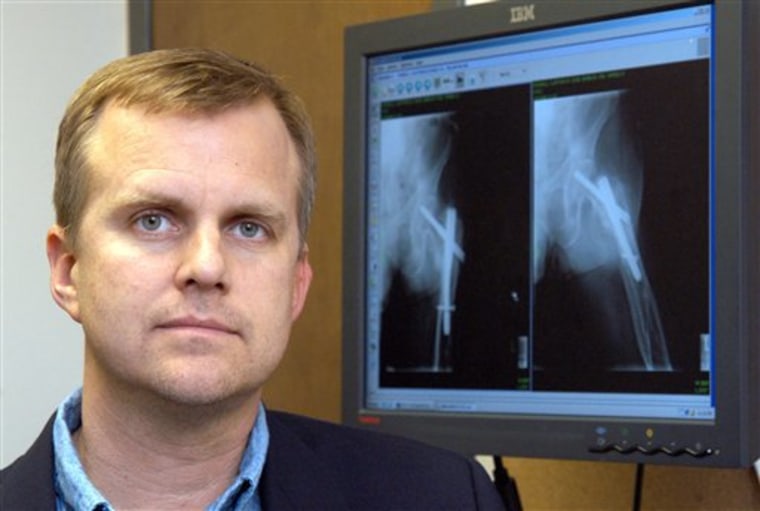It was not the flooding that drove Dr. David Jones out of New Orleans for good. His house in the Lakeview neighborhood stayed dry. Instead, it was the way Hurricane Katrina eroded the orthopedic surgeon's practice.
With fewer patients to treat and no patience for the sluggish pace of the city's recovery, he moved his family and practice to Raleigh, N.C., in July.
"I love New Orleans and always will," said Jones, 39, who now works at a hospital affiliated with Duke University. "I could have made a go of it there, but it would have been slow and arduous."
New Orleans is losing an alarming number of young professionals in Katrina's aftermath. Many doctors, lawyers, architects, engineers and other highly educated people are gone. Some left during the storm and never came back. Others came back, but soon gave up and moved out altogether.
Whether a full-blown brain drain is under way is unclear. But some suspect so, and fear the exodus will only get worse.
"They don't see the career opportunities here that they see elsewhere," said University of New Orleans political science professor Susan Howell.
A diminished client base
For many professionals trying to make a living here, the number of patients and clients has dropped off drastically. Less than half New Orleans' pre-Katrina population of 455,000 has returned.
A recent survey by the University of New Orleans suggests the loss of the region's best educated, most talented and highly trained workers could worsen. One-third of residents surveyed in October said they are likely to leave within two years, and those with postgraduate degrees were even more likely to consider leaving.
Health care has been especially hard-hit. Thousands of doctors, nurses and medical technicians were evacuated after Katrina in August 2005. Sixteen months later, only five of 11 hospitals are open, just one at full capacity.
According to another survey by the university, the city has regained less than 60 percent of its non-hospital physicians and its private education jobs. A similar percentage of professional, scientific and technical workers, including lawyers, engineers and architects, had yet to return more than a year after the storm, the survey found.
One who came back but plans to leave again is Jennifer Lange. Lange, 33, was president of the Young Leadership Council, an organization of young professionals, when Katrina hit. A marketing manager for Isidore Newman School — whose graduates include the NFL's Manning brothers — she evacuated to Houston, then came back a few months later.
But her job was one of about 90 eliminated by the private school, and she found herself working at a lower salary for an insurance and benefits company.
‘We'll be back one day’
Now, she plans to move back to Houston with her fiancé, financial planner Thomas Brandino.
"I never wanted to leave," she said, "but he looked around and couldn't find a job here." Still, Lange is optimistic: "We'll be back one day. He's promised me."
William Frey, a University of Michigan demographer who has studied post-Katrina population trends, said young people with professional opportunities are the most likely to leave.
"The long-run trend has been a substantial brain drain from the metropolitan area," said Frey, who added that he expects more young professionals to leave.
Louisiana State University economics professor James Richardson said he has yet to see "irrefutable evidence of a brain drain."
But Katrina has made recruiting a challenge for Entergy Corp., the utility company whose New Orleans division declared bankruptcy after Katrina destroyed much of its electric and natural gas systems. Robert Spencer, an Entergy human resources director, said the company has 400 openings, mostly for accountants and engineers.
"We're not getting enough people knocking on our door as we were pre-Katrina," Spencer said. "The moment they find out we are headquartered in New Orleans, they think back to some of the scenes of what they saw on TV and they don't give us any kind of consideration."
Tulane missing 10 percent of faculty
Tulane University has a similar problem. About 40 of 400 tenure-track faculty members left after Katrina. Provost Paul Barron said he probably will not know until spring how many faculty members will return for the 2007-08 academic year.
"There is probably a large number of people who are thinking about leaving," he said. "It's still not the easiest city in the world to live in."
Jones, the doctor who moved to Raleigh, said a lack of recovery planning by government officials may be causing white-collar workers to move on.
"It seems they were more interested in getting tourists back than helping residents return," he said. "They had a real chance to change things, but they blew it."
